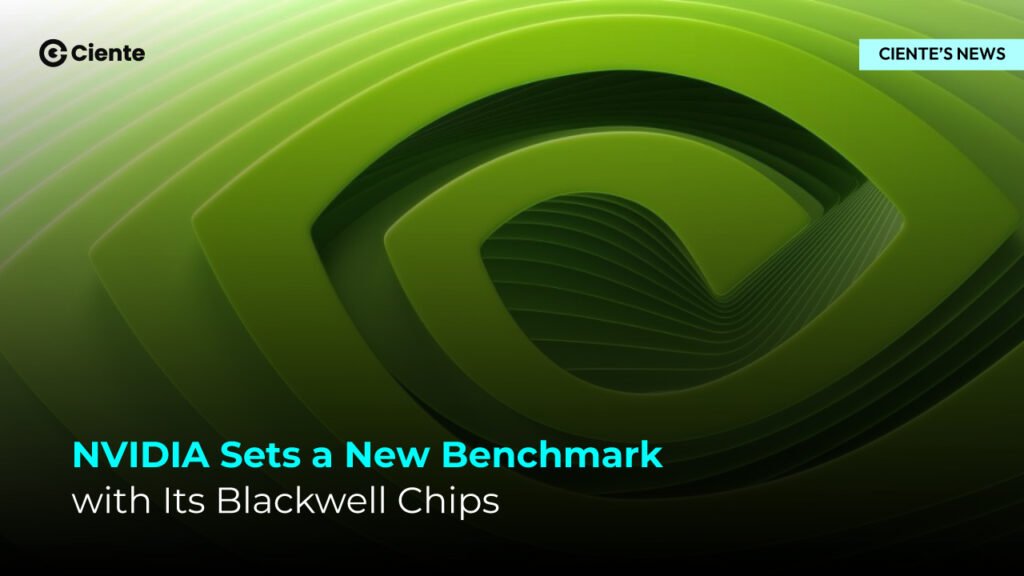The total chips required to train AI systems could dramatically drop with NVIDIA’s next-gen chips.
The stock market’s concern regarding upcoming AI models has shifted vastly towards the amount of chips required to train these systems. It has remained a chief concern amid the broader market’s management of AI inference.
And NVIDIA has emerged as a rising star.
A recent report published by MLCommons asserted exciting data regarding the training chips for AI systems.
The good news is that NVIDIA’s newest Blackwell chips have made significant gains in training large models. In simple words, organizations would now require fewer chips to train models. This data is based on a per-chip basis, almost twice as fast as the Hopper chips.
MLCommons further asserted that its data was a result of using these chips to train Llama 3.1 405B, known for possessing the maximum range of parameters. By using this specific AI model for the test, researchers could gauge how these chips would perform while attempting to complete some of the most complicated training tasks ever given to an AI system.
And the Blackwell chips have shifted the game. They completed the entire test in 27 minutes, almost three times the previous generation chips.
Regarding this news, China’s DeepSeek has claimed to have already developed a chatbot that utilizes fewer chips than its US competitors.
This could be a significant step in a positive direction. Using fewer chips during AI training would elevate sustainability, reduce costs, and improve efficiency.
And in the long run, it would help developers launch more complex models, transcending the vast possibilities that AI could ever afford us.



